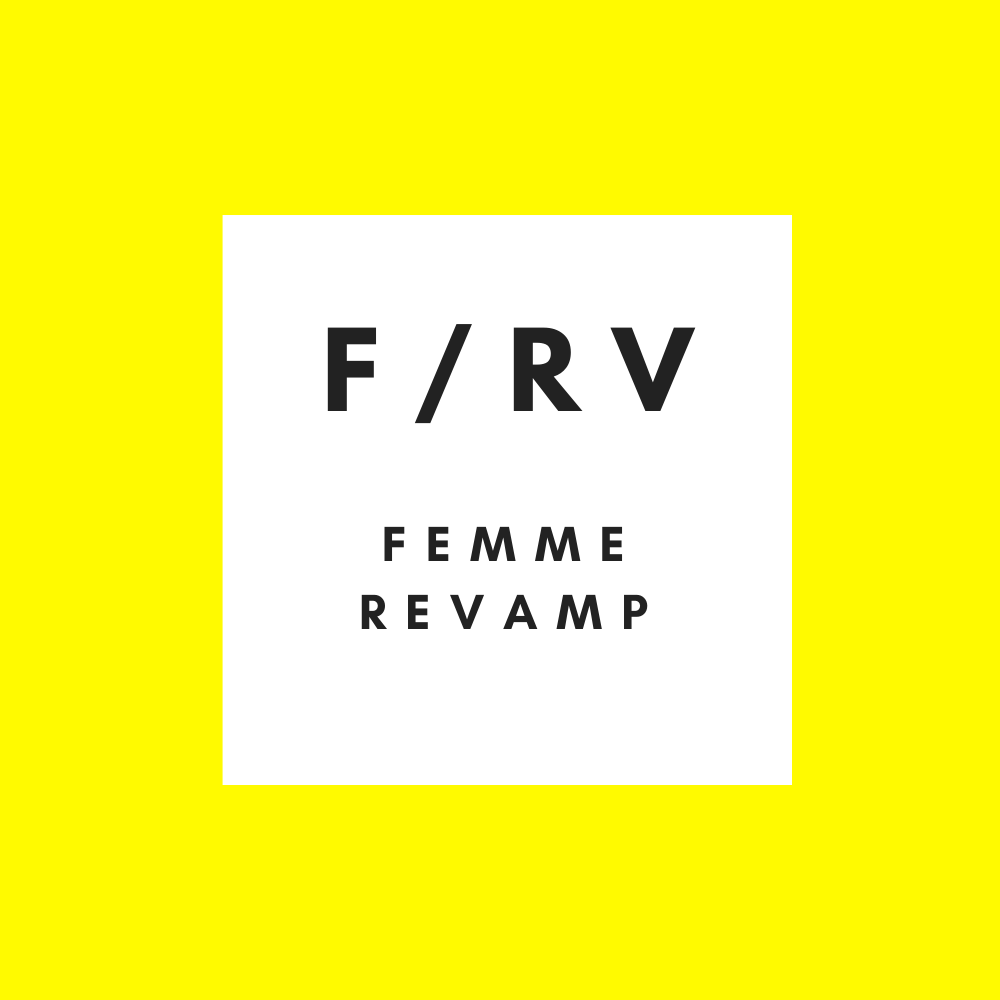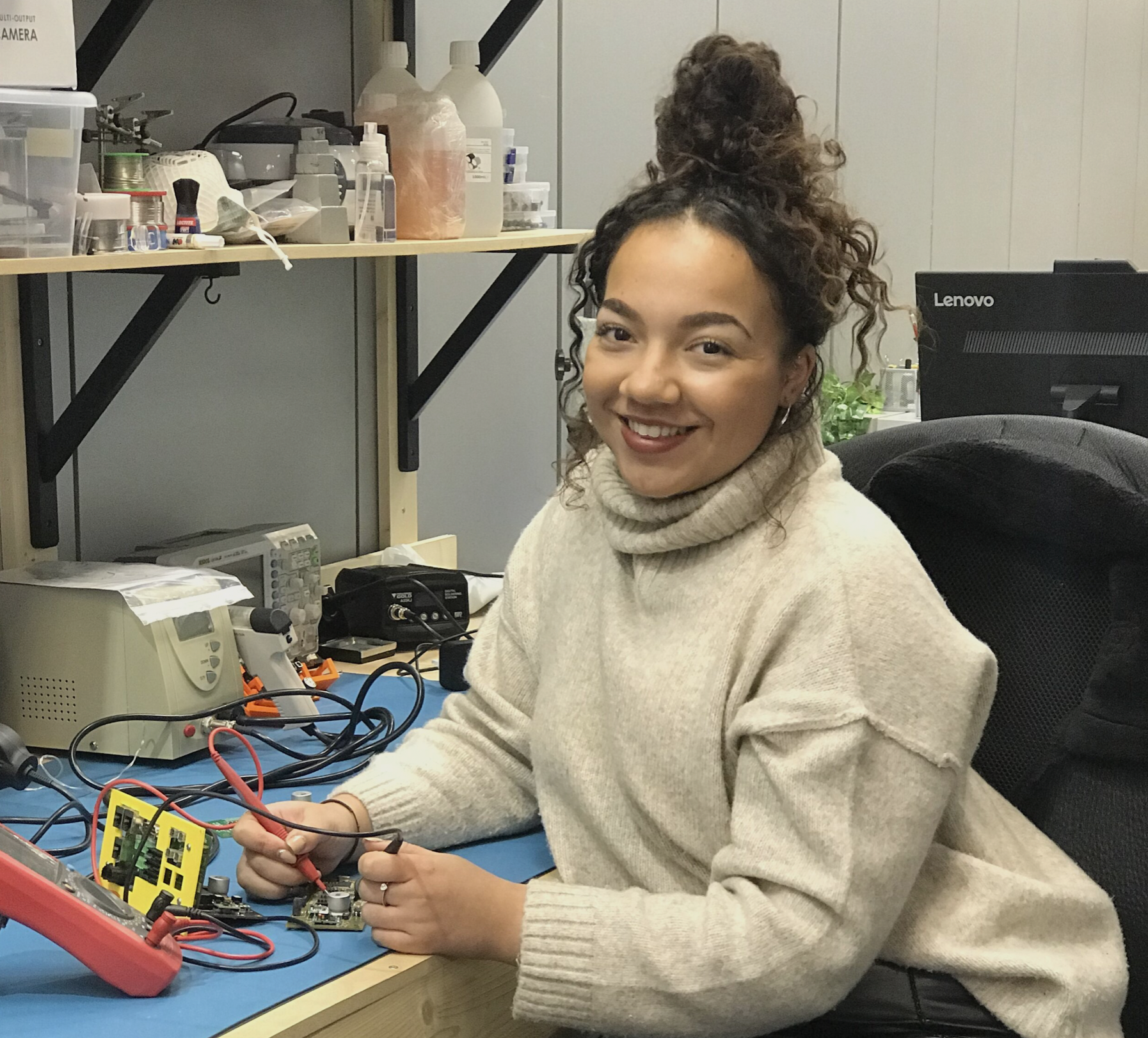Ebony Allison
Ebony Allison is an electronic engineer from a small northern town in the UK. She relocated to London after receiving her BEng in electronic engineering and a role at a London based robotics start-up.
This was when she began a social media page (@ebgineering) to showcase her journey as a woman working in Tech whilst completing a part time Msc Web and mobile app development technologies. Her passion is to help diversify STEM and provide free learning tools.
Interview: Ebony Allison, Electronic Engineer of Fox Robotics
By Angela Tai
When did you first become interested in tech and how did you get involved in the tech community?
First, It was through engineering that I became interested. I was seventeen and I was deciding what to study at university. I chose math and statistics for A-level examinations and I had no idea what to do with the subject so I went to my career advisor, who advised me to study engineering. I wasn’t that involved in the tech community until I graduated college - that’s when I started my social media page and it was mainly from going to talks, events, and stuff like that.
How do your workshops and talks encourage more diversity in STEM fields?
I feel like my image helps — I’m biracial and I’m a woman — my image isn’t common in tech. I make it a priority to have my face on posts on my Instagram page, so that people see me. Also I’m quite girly which isn’t common either. As for my accent, I’m not classified as being “well-spoken” in the UK, it makes me very “uncommon” for an engineer. Having my face on things is what encourages diversity since I am diverse myself.
What is it like to be a woman in engineering? Do you feel that your gender gives you a different perspective and experience from your male counterparts?
I didn’t have a lot of confidence when I first started in the industry. As a woman, there’s not much room for error. You make one mistake and the next time you’re assigned work is, “remember you did that wrong.” You can’t really mess up, it can be so damaging. If you’re put on the spot and don’t know the answer, then you won’t be asked again but the upside is that it does make you a better engineer in the end. Especially when I was first starting out, I wasn’t nearly as confident. Now, I’m like “I said that,” or “that was my idea”. The first thing is — when you’re going into the tech industry as a woman, it’s important to be confident. You see, with electronics it’s very black and white meaning it either works or it doesn’t. It enables you to see what good work is and if you’re producing good work, that should be enough to determine how you should be treated. If you’re still not receiving the respect, it boils down to having confidence in yourself.
What are the biggest misconceptions people have about your job?
I don’t think many people know what it is, people have no idea what I do. It’s just the stereotype of an engineer being very introverted and there’s an ongoing joke that I don’t fit in because I am full of energy. I would say the stereotype is true and most engineers are quite introverted. I think it’s mainly the personality traits that people expect you to have when you say you’re an engineer. I actually don’t like Star Wars which people expect me to like just because I’m an engineer. Even as someone working inside the tech industry, it’s still all a mystery to me.
Recently, you posted about International Women in Engineering Day on your Instagram page. In your caption, you talked about how you have experienced your fair share of sexism in the industry. This is definitely something that countless other women in STEM fields can relate to. What is your advice to those who are dealing with discrimination in the workplace?
I think it’s hard because in the UK, the discrimination is very passive aggressive. For example, I’ve encountered a situation where our interns have all been previously included but there have been times where I haven’t been included. They’ll come to me with ideas where I should have been involved in the beginning stages vs. my male counterparts were involved for the entire process. I work at a start-up, and it’s hard because we don’t have a well-established HR department. If you work at a big company, keep note of things that happen and ask yourself if it really is discrimination and then go to HR so you won’t be patronized for it. You have to develop a thick skin because the industry is so behind, from who I have spoken to, other people have similar issues at different companies. If it’s really bad, leave and find something else. Just decide: Is it worth it and is it affecting me being able to do my job? I can still thrive and the thing that keeps me going is my current boss. If you have a good relationship with your superior, that really helps. Having an alliance in the company, someone else who can say “yeah I saw that. It did happen.”
What propelled you to branch into software development from electronic engineering?
It was for my job, my manager asked if I would mind learning backend engineering so that was when I taught myself web development in 2 months. Luckily, I found a master’s in web and mobile development where I can study on weekends while I work full-time. Electronic engineering/robotics is still my main role but for now I just switch between the two.
What do you think about the no-code development platforms (NCDPs) that are popping up?
There’s the fear that it has taken away from web developers but in order for this to work, we still need engineers to code and make the products. I love backend development so the backend authorization is stuff that I enjoy — I also don’t have a big opinion on it — any type of development is good.
What is the hardest aspect of your job?
I think it’s always the hardest when I get towards the end of the project. Also, documentation (laugh). It’s fun at the beginning of the project but if I’m doing software coding — having to go back and check my work — that’s not as enjoyable (laugh).
You’re currently pursuing your master’s degree in web & mobile app development alongside working a full-time job. How has COVID-19 altered your daily routine?
I actually started the master’s during COVID and I’m so happy that I started during the pandemic because I’ve had no commute for work. I can literally finish my job, eat slowly and relax for a bit, then start work. I’ve been enjoying it because I have more free time and it has given me more time to work on my engineering page. I love it; I have a work computer here so I do work at my desk to make sure that I’m not distracted by Netflix. I feel like everyone else wants to go back into the office but if there’s any extra time for Netflix, I’m happy. I think because I’m already on a part-time basis for my master’s program, I’ll probably be able to remain remote for the rest of my coursework.
I love the tutorial style content on your Instagram. Do you have any projects coming up? And, do you have any specific goals for these social media tutorial series?
So, I work closely with Code Collabs. It’s great — especially for people of color getting into tech. I don’t have any specific goals to reach, I’m actually trying to do more educational posts now which will gradually grow into bigger projects. I think for my page, I would love to do more panel talks and workshops in schools but those are just some broad end goals to meet. As far as my Instagram content style, I love fashion and beauty pages so I thought, why not combine my (Science, Tech & Engineering) tutorials with my passion for fashion and beauty blogs and mimic how they share their makeup/fashion tips.
Did you have a role model when you first got into tech?
No, I didn’t know what an engineer was until I got my job. I’m not from the best area so apart from lecturers, I never even met a real engineer until I started working. A lot of conversations my colleagues have at work, that might seem intuitive for them, aren’t necessarily things I’m familiar with because I didn’t get into engineering until university.

